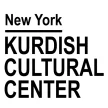Resisting Erasure: The Role of Kurdish Lexicography in Preserving Language and Identity
States deliberately attempt to strip Kurdish language of its political and cultural significance by marginalizing it, reducing it to a dialect, a folkloric artifact, or a local tradition. These strategic maneuvers are designed to undermine its role in national identity and imagination and push it toward extinction.
Hence Kurdish lexicography is essential, not only for the preservation of the Kurdish language but also for resisting systematic oppression. Over the past century, Kurdish lexicographers have labored tirelessly to document and enrich their language. They face severe challenges, including relentless political and cultural hostility, poverty, imprisonment, and repressive state restrictions. But their work is crucial in countering marginalization.
This presentation will spotlight the profound contributions of Kurdish lexicography, emphasizing its critical role in safeguarding linguistic heritage and resisting the erasure of Kurdish cultural and political presence. It will argue for renewed recognition of its vital impact on the cultural and literary landscape.”
 Kamal Soleimani specializes in Islamic and Middle Eastern history and politics. He holds a PhD in Islamic and Middle Eastern history from Columbia University (2014) and has taught at Turkish and American universities. He is currently a professor-researcher at El Colegio de México. He is the author of several books examining the pivotal role that Islam played in the rise of nationalism among Arabs, Turks, and Kurds. He has also authored over a dozen scholarly articles that have appeared in major academic journals including Security Dialogue, Current Anthropology, Nations and Nationalism, Third World Quarterly, Ethnicities, The British Journal of Sociology, Postcolonial Studies, Middle East Studies, and The Muslim World.
Kamal Soleimani specializes in Islamic and Middle Eastern history and politics. He holds a PhD in Islamic and Middle Eastern history from Columbia University (2014) and has taught at Turkish and American universities. He is currently a professor-researcher at El Colegio de México. He is the author of several books examining the pivotal role that Islam played in the rise of nationalism among Arabs, Turks, and Kurds. He has also authored over a dozen scholarly articles that have appeared in major academic journals including Security Dialogue, Current Anthropology, Nations and Nationalism, Third World Quarterly, Ethnicities, The British Journal of Sociology, Postcolonial Studies, Middle East Studies, and The Muslim World.
Host: Janet Biehl















